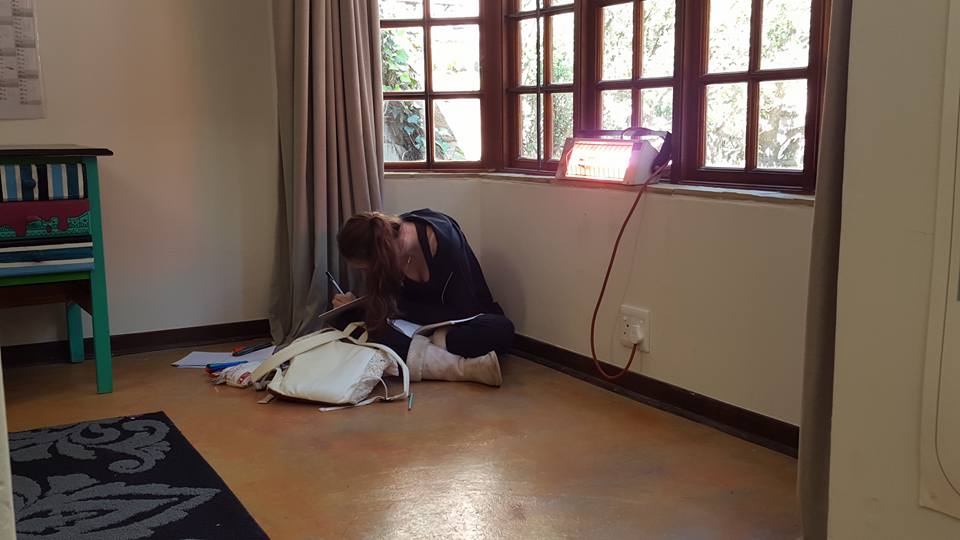|
- written by Susan Friese Often I receive emails and queries from parents asking the question, “Isn’t it too late in the year to change my child’s school?” I get this at the end of the first term, midyear and in the last few weeks of the school year. My answer is always the same – no, it’s not too late if your child is unhappy. For me (speaking from personal and professional experience) the schooling experience must be a happy one or at least not a bitter one; or the student’s education and interest in education will take a massive hit. If a person hates every minute of their university degree, their job or their workout (for example) they would always be advised to make a change. So why then are unhappy school kids constantly told to just get on with it? In many instances it’s because the school cannot deal with the child or the teachers think the student is just not willing to adjust (read conform). The anxiety that may consequently occur is overwhelming. Why are kids unhappy at school? The answer is myriad. Maybe they don’t find the work challenging. Maybe they have a personality conflict with teachers. Maybe they don’t fit in with their peer group. In many cases the school and the student just aren’t a good fit. In a small study centre such as mine I see kids who have been bullied, or who move too quickly for the system because they are bright and therefore bored. And some kids just hate school. They hate the autocratic style of classroom dynamics and they battle with kids their own age. A huge percentage of school time is spent changing classrooms, queuing at the tuck shop, waiting for teachers and waiting for the class to “settle down” = 30% of the day wasted.  "In a small study centre such as mine I see kids who have been bullied, or who move too quickly for the system because they are bright and therefore bored. And some kids just hate school. They hate the autocratic style of classroom dynamics and they battle with kids their own age." Susan Friese on why some of her students don't like school. Part B of original question: If a child hates their school why keep them there? If they want to change to a smaller school or an international school or a co-ed school, is forcing them to stay where they are building character and teaching them to fit in? No. Most likely they will just learn to hate their environment more. They will learn to avoid certain situations, people and places. They will learn to tune out. They will learn to drag their feet and be late for every class. Is this what we wish to instill in our future generation? At my study centre I want my students to love learning. I want them to finish at their own pace (even subjects they dislike), and work harder on the subjects they love. They schedule in time for each subject, reading time, time to walk about and time to have tea and chat. We have non-academic Fridays where we explore museums; visit art galleries, watch movies at the cinema, on YouTube and TV; we check out expos and exhibitions. There is more to education than pure academics and we all need to be reminded of it. So when should a child leave the current school? You, as a parent, will know when.
When he doesn’t fit into their mould. When she refuses to go to school every morning and life becomes a battle. When he comes home grumpy because the boys tormented him. When she is angry because her “friends” picked on her all day. When he says the teachers are stupid. When they don’t understand her. One parent phoned me and asked whether it was too late to move her grade 9 student? Mom said the girl was crying herself to sleep every night. I told her to bring the girl to my centre the next day. She has already caught up the whole year’s syllabus; because she is motivated and happy. Another parent questioned the transition from mainstream to Cambridge. Again, the answer came down to what the child wanted. He hated his high school. He wanted to study abroad, he was motivated to catch up and he was bright enough to do it. So what’s the problem? There is no problem, only change. On a personal note: I left a government school at the end of the 3rd term to move to a Cambridge centre. I completed 5 O levels in 6 weeks, 2 AS levels and 2 full A levels the next year. I have 2 degrees and a passion for education that extends beyond my textbooks. I am the owner/operator of To Educate Academics (now Penhurst Academy), a study centre in Randburg where students complete an international high school syllabus though Cambridge and become happy and healthy individuals. The teen spirit is a unique and vibrant entity, don’t let it be quashed. This blog post originally appeared on the To Educate Academics website before becoming Penhurst Academy.
2 Comments
by Susan Friese I've been reading a lot recently about the Montessori method in education and all the research that has gone into how peer groups work so well in an educational setting. I know how well this works with my teenage students and I have structured my study centre to run on similar philosophies. As I have said before, teens are not so different from toddlers as they both require a certain level of patience and humour when trying to educate them. I have drawn many parallels here between Montessori for kids and the way we can educate teens, so please bear with me. Whilst Montessori is mostly geared towards primary school, I believe that the same principles should apply to secondary education as well. This is especially true where the syllabus is already provided and the students are required to work through it autonomously. Please note that I am not affiliated to Montessori, but Cambridge in fact. I do, however, believe in alternative educational approaches for the new generation of bright young things! One of the cornerstones in Montessori (and my centre) is that children are free to take their work and do it wherever they choose to, with whomever they choose. Many students often prefer to sit on the floor or outside in the sunshine or even, sometimes, under a desk. As long as a kid is working, why would I care if she’s upside down? The only set rules at a Montessori and here is that the students must respect each other and not distract and disturb others. For this reason the kids need space to move about, different places to sit and slouch around and the freedom to do so. I have never understood the rigidity of conventional school, although I do appreciate that the conventional teaching style requires conformity and restrictions, and for many kids that’s okay. But I believe that kids should be free to work wherever they are comfortable, individually or in groups. I often joke that I'm here just to crack the whip! So what if your kid doesn’t get on with people his own age or if she prefers to wear trousers instead of a skirt? I, personally, am not a fan of anything that inhibits a person’s creativity and prefer an environment that celebrates the differences between individuals. In my centre I have seen a grade 8 student help a grade 10 kid with maths, and a 17 year old assist a 12 year old with art. And they all share their YouTube videos. Montessori principles too rely on children working with children of other ages and in a way that benefits everyone. They aim for, “A classroom atmosphere which encourages social interaction for cooperative learning, peer teaching and emotional development.” I wholeheartedly agree with this. How can a person ever be expected to work well at ‘varsity or in the workplace when they have no experience with this? I truly feel that kids from a more flexible educational system have more life skills for the real world:
Freedom of thought is also hugely important to me, especially in the new South African context. Kids need to feel confident in expressing their opinions in order to succeed with in higher learning institutions. To quote from the South African Montessori Association website, “Montessori children tend to be very socially comfortable. Because they have been encouraged to problem solve and think independently they are happy, confident and resourceful.” This means that they will make excellent secondary and tertiary students. Cambridge exams are hugely reliant on informed opinion writing as well as creativity and unique approaches to problem solving. It would seem that Montessori schools would be a great lead in to higher learning that requires students who are able assimilate and relay information rather than regurgitate required data.
What resonates with me about the Montessori method is that they aim not only for academic achievement but also emotional strength and development in children. I am not a trained teacher, in fact my degrees are in psychology, so I can appreciate the equal importance of both. Children shouldn’t have to conform to their environment, they need to learn how to make their environment work for them. We don’t want to raise pure academics, we want balanced and spirited adults who can face the world without fear and limitations. I found much of my Montessori-based detail on this informative site. Originally appeared on the To Educate Academics website before becoming Penhurst Academy. This is the provisional calendar for 2019:
Term 1: 16 January – 12 April Midterm break (21 – 26 February) Term 2: 6 May - 08 August Midterm break (29 June – 7 July) August workshops (12 – 16 August) book and pay in advance to secure a place Term 3: 9 September – 28 November Midterm break (24 – 29 October) Not for IGCSE2 and AS level students Cambridge exams run from 1 October to 22 November (Checkpoint, IGCSE2 and AS/AL) Independent Academy exams run from 11 – 28 November (juniors, IGCSE1) Last updated: 04 September 2018 |
AuthorSusan Friese 
Susan is one of the passionate Founders and School Leaders of Penhurst Academy. She's our Academics Leader as well as an avid writer and contributor to this blog.
Archives
Categories
All
|
A modern approach to global education
GRADES 8 - 12: O AND A-LEVELS
|
Web design by Rebelle Creative © 2023 Penhurst Academy
|




 RSS Feed
RSS Feed